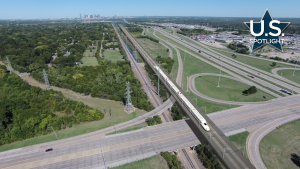The long list of disruptions to construction associated with the COVID pandemic includes delays, price increases and the possibility of material substitution in order to stay on schedule.
However, as Sahil Shoor, a partner with Gowling WLG, pointed out last week, both owners and the courts are becoming less empathetic towards breaches to existing contracts related to pandemic-related non-performance.
As a result, Paul Conrod and James De Melo of WeirFoulds LLP, point out that the foreseeability of various forms of pandemic disruptions mean parties should not rely on force majeure clauses as cover for the consequences of their own actions or entitle them to refuse to perform their contracted obligations.
“Claims clauses in contracts often have specific procedural and substantive requirements. A claim for increased compensation or extension of time may be denied if the requirements are not met.”
Shoor advises contractors to review their agreements with suppliers regarding price and delivery issues with the same diligence as undertaken with project owners.
“This would be a considered a best practice and will ensure that the contractor is able to deliver to its customer at a price and time as per its agreement. Furthermore, it will also ensure that all of the risks are apportioned correctly and to the party who is best suited for it.”
In addition to reviewing legal entitlements, Conrod and De Melo suggest parties, “give consideration to a number of practical realties of construction work during the COVID-19 epidemic and its aftermath.”
“Review essential project timelines and milestones to determine what levels of delay and costs can be absorbed before critical issues begin to accrue. Working backwards from this point, owners and contractors will need to take steps to ensure that potential supply chain disruptions are pre-emptively addressed to avoid reaching critical levels of delay or untenable and unbudgeted materials costs…This will limit the potential impacts of a localized outbreak of the virus which shuts down a crucial supplier and will allow projects to proceed notwithstanding the issues of any one supplier or region.”Prospective contractors can address many such issues by asking questions during the pre-bid process, write Jennifer Budd and Michael McKenna of U.S. law firm Cohen Seglias Pallas Greenhall & Furman PC.
“Will the owner consider alternate or substitution requests on an expedited basis? Will the owner also accept a substitute manufacturer in lieu of the agreed-upon manufacturer?”
If so, Shoor suggests, “the underlying contract should also provide the mechanism to deal with it and what happens if the substituted product is either cheaper or more expensive.”
More specifically, Budd and McKenna suggest contractors ask if the owner will consider a price escalation clause in the contract.
“Will the owner issue a lump sum line item or an allowance to compensate the contractor for cost increases due to supply chain delays and impacts?”
The contractor will also likely need to establish to the satisfaction of the owner that all standards, specifications and safety considerations are still being made.
“Any material or component substitution has to work with the design in mind, and this may require consultation and approval from the consultant on the project,” Shoor continues. “This may cause some delay to the project, depending on the complexity of the material or component substitution.”
Indemnification clauses could also play an increasingly important role in future contracts, Conrod and De Melo suggest.
“Indemnification provisions can be used to pre-emptively determine who bears the risk for price increases or the cost of delays resulting from the unavailability of equipment and materials.”
The application of an indemnification clause hinges on how the risk associated with supply chain disruptions is allocated, or not, to specific parties and what, if any, alternate risk allocation tools are included in those provisions.
As a caution, Budd and McKenna advise, “if the owner’s answers reveal that it is operating in a ‘business as usual’ manner, then contractors will need to increase their prices to account for the added risk.”
John Bleasby is a Coldwater, Ont.-based freelance writer. Send comments and Legal Notes column ideas to editor@dailycommercialnews.com











Recent Comments
comments for this post are closed